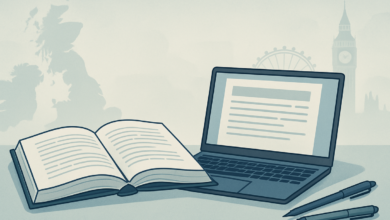World 2025: Global Shifts, Unity, and New Challenges
World 2025: Global Shifts, Unity, and New Challenges
The world 2025 is a mix of fast innovation and rising global cooperation. Governments, industries, and communities are working together to face complex changes. Health systems are expanding their focus to preventive care, and education is seeing a blend of online and offline learning. Amid everyday routines, people still explore local places like cigarette shops or public markets for daily essentials. These simple habits continue while technology reshapes how we interact and grow as a global society.

Economy and Trade: Global Interdependence
The global economy in 2025 has become more collaborative and interconnected. Trade networks between countries are stronger, especially across Asia, Europe, and Africa. Supply chains have become more digital and transparent, using blockchain systems to track movement of goods.
-
Countries are forming more trade partnerships to reduce dependency on single regions.
-
Cross-border digital payments are faster due to upgraded financial infrastructure.
-
Small businesses are using e-commerce to reach international customers.
-
Resource-sharing agreements are helping reduce waste and improve distribution.
The economic focus is now on stability through technology, green energy investments, and skills development. Governments are also promoting local production to ensure consistent supply in key industries.
Technology: Growth with Purpose
Technology in 2025 is expanding across all areas of life, from transportation to healthcare. Automation is helping reduce routine workload in sectors like agriculture and retail, while human workers focus more on management and creative tasks. AI and robotics are being used in smart homes, logistics, and even elderly care.
-
Renewable energy technologies like solar and wind are widely adopted.
-
6G testing is underway in many regions, enabling faster communication.
-
Smart cities are using sensors for traffic flow, water use, and public safety.
-
Telemedicine platforms are offering faster access to doctors and medical records.
Digital literacy programs are helping people adapt to these changes so no one is left behind. The emphasis is on inclusion and making sure digital tools improve lives in practical ways.
Climate and Sustainability: A Shared Responsibility
Environmental efforts in 2025 are seeing more cooperation among nations. There’s growing commitment to lowering emissions and increasing green projects. Cities are planting more trees, shifting to electric public transport, and supporting recycling infrastructure.
-
Ocean cleanup operations are expanding with new floating waste collectors.
-
More regions are using satellite data to monitor deforestation and water usage.
-
Smart farming tools are helping reduce pesticide use and conserve soil.
-
Companies are releasing sustainability reports with full data transparency.
People are adopting eco-friendly choices like solar panels and plant-based diets. Governments and organizations are offering grants to support businesses that follow green practices. The focus is on shared responsibility for a healthier planet.
Education and Employment: Skills for a New World
In 2025, education systems are focused on preparing people for a changing job market. There’s a shift toward practical learning, where students engage in problem-solving and project-based tasks. Online platforms offer global access to specialized courses, from data science to clean energy management.
-
Short-term certification programs are helping people change careers more easily.
-
Virtual classrooms are more interactive with real-time quizzes and AI tutors.
-
Companies are supporting continuous learning through sponsored courses.
-
Remote work remains common, supported by secure and flexible software.
Schools and workplaces are encouraging teamwork and communication. These soft skills are critical in today’s global workforce. Governments are also investing in job training programs for rural areas to create balanced growth.
Health and Wellbeing: Expanding Access
Healthcare in 2025 is more connected and proactive. Clinics and hospitals are using digital platforms to monitor patient progress, provide virtual consultations, and track vaccines. There is a greater focus on mental wellness and stress management in daily life.
-
Community health centers are using mobile apps to track common illnesses.
-
Fitness programs are combining real-world coaching with digital tracking.
-
Healthy food delivery services are supporting preventive care.
-
AI diagnostics help identify health risks before they become severe.
Urban planning also considers access to parks and quiet zones for better mental health. Collaboration between public and private health sectors is making care more affordable and available.
Social Unity and Cultural Exchange
People in 2025 are more aware of each other’s cultures, values, and experiences. Social media is a space not just for content but for shared learning. Events like virtual museum tours and global festivals are popular among all age groups.
-
Language-learning apps include more regional dialects and cultural tips.
-
Digital volunteer programs allow people to contribute across borders.
-
Art, food, and music exchanges are helping preserve cultural heritage.
-
Youth-led global forums are discussing equality, peace, and innovation.
This kind of unity doesn’t erase differences but promotes respect and collaboration. The world is finding ways to stay connected, even while honoring local identities.
Everyday Choices Reflecting Bigger Trends
Daily choices in 2025 often mirror the broader changes happening worldwide. People are more aware of what they consume, where products come from, and how they affect the environment or community. This extends to lifestyle items, whether someone is searching for new home gadgets, healthier food, or even checking out what’s available when searching for vape juice near me for their preferences.
These small behaviors show how global shifts are affecting personal habits. The connection between local and global is more visible than ever, shaping how we all live and work.




